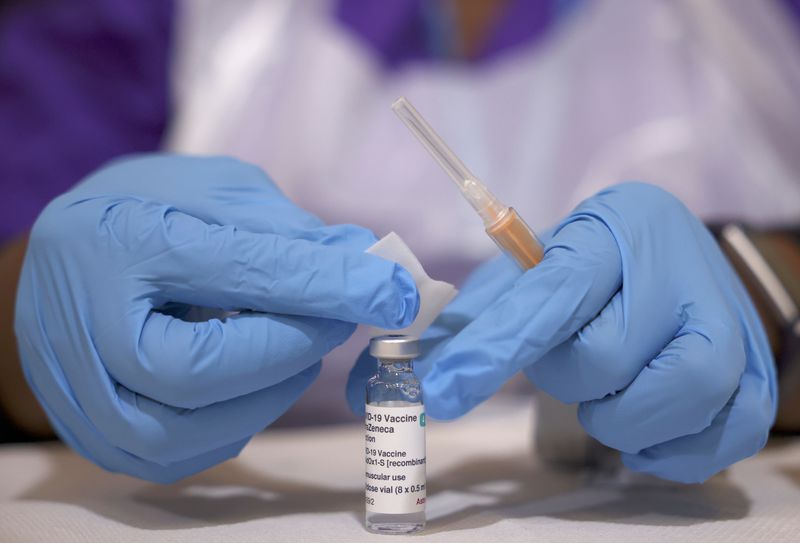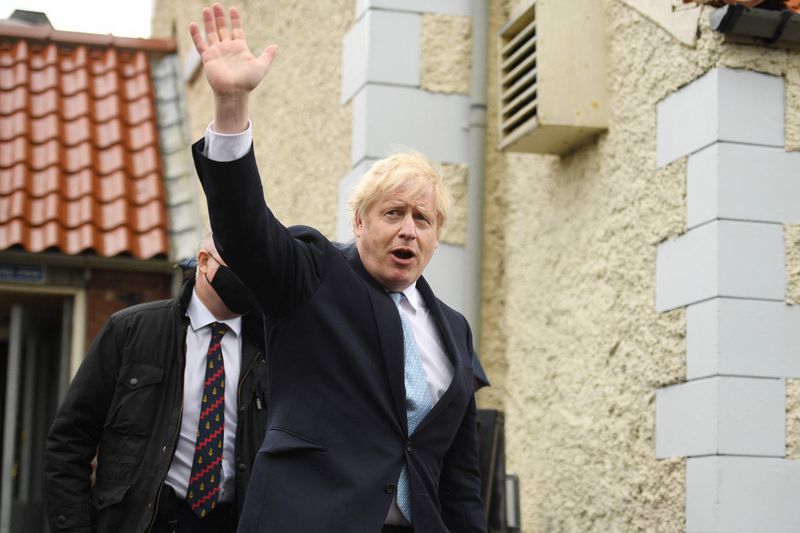On March 1, British Ambassador Louise de Souza assumed the mandate in Santiago. She joined the diplomatic corps in 1991, and before arriving in Chile, she served as ambassador to Tunisia between 2016 and 2020. She has also worked on missions in Nairobi, Maputo and Brasilia. Additionally, she served as Head of Humanitarian Affairs in the Rights and Democracy Division of the British Chancellery. In his first interview since arriving in Chile, De Sousa spoke with La Tercera about the bilateral relationship between London, Santiago and the UK’s Covid-19 vaccination program.
What are the UK’s priorities in its relationship with Chile?
It is really an exciting time to be an ambassador here, now that the UK has left the European Union and we have negotiated an ongoing free trade agreement with Chile, we have a new opportunity to expand our commercial investment relationship between the UK and Chile, which should be beneficial to both parties. Second, the UK and Chile are very close partners in the fight against climate change. Chile will chair the 25th session of the Conference of the Parties and the UK will chair the 26th session of the Conference of the Parties, so this is a big priority for us bilaterally, and tackling climate change is the first priority in UK foreign policy. The UK and Chile are both heading towards the Indo-Pacific region, which is the region with the most growth opportunities in the coming years.

What other areas, besides climate change, would you like to promote?
The other major problem we face globally is the impact of the Covid-19 epidemic, as Chile has shown its leadership with regard to its vaccine program and we are pleased that both the UK and Chile have effective vaccination programs. But we also agree that much more needs to be done to ensure that vaccines and treatment are available equitably around the world. The United Kingdom, for example, has donated 1,300 million pounds ($ 1,818 million) to various initiatives to promote equitable access to vaccine treatments. And we, along with Chile, are leading an effort to secure a new pandemic treaty with the World Health Organization, which we believe can help us ensure the world is better prepared next time.
I mentioned the British vaccination program, what is the key to success?
As in the case of Chile, our government did well in anticipating and anticipating and investing in a variety of potential vaccines before anyone knew if they would work. So we ended up with a good batch of vaccines that we can implement, and we’re glad the world has done a great job in the past year to introduce the most innovative and successful products. We have also invested millions of pounds of British government money in developing the Oxford / AstraZeneca vaccine, which we believe can make a real contribution to solving the crisis around the world, because AstraZeneca is produced at cost.

Regarding AstraZeneca there has been a lot of controversy, how would you rate that?
I think it is important to say that accredited regulators around the world, including the World Health Organization, have made it clear that it is a good and safe vaccine. It is a very important part of solving the problem. The second thing is that the world has never attempted to produce and deploy vaccines so quickly and on this scale before. And no wonder it’s not just AstraZeneca, but other vaccines have problems, too. So I think we are learning a lot of lessons. AstraZeneca is commended for its approach to trying to provide a cost-effective, global solution.
After the integrated review of security, defense, development and foreign policy, the United Kingdom now looks to the Indian and Pacific Oceans. Will they leave Europe behind after Brexit?
In the Integrated Review, we affirm our role and mission as a European-Atlantic power, and that we remain an integral member of NATO. We are still Europeans and our European partners and allies will remain our partners and allies, and nothing has changed. What we do with integrated review is the realization that the world is changing, becoming more competitive. We face new and innovative threats, both in ordinary space and in cyberspace. Nevertheless, we must consider the Indo-Pacific region as the region of the world with the greatest potential. We now have the freedom to leave the European Union to negotiate trade agreements. This is why we did our best to join TPP11. We also need to develop a relationship with like-minded partners who share our values and priorities in the Indo-Pacific region.

What are the UK’s priorities now that it leaves the European Union?
The UK wants to act on the world stage as a trusted partner and ally of countries that share our values. We also discussed this week with the G7 foreign ministers meeting in London, where we reaffirm our resolve to defend and promote democratic values, human rights and the rule of law. We also want to be pioneers in greater free trade and better quality, which is why we are interested in TPP11, which is a high-quality agreement, which raises standards among its members.
What is London’s position in the face of the second independence referendum in Scotland?
I’ve heard the prime minister say now that the priority is, in fact, economic recovery from the pandemic. So this is clearly not the time to talk about the independence referendum. This is the time to ensure the entire UK has recovered from the pandemic. Therefore, the Prime Minister will clearly defend the merits of the union, which is historically the most successful political and economic union in the world.

“Subtly charming bacon junkie. Infuriatingly humble beer trailblazer. Introvert. Evil reader. Hipster-friendly creator.”
